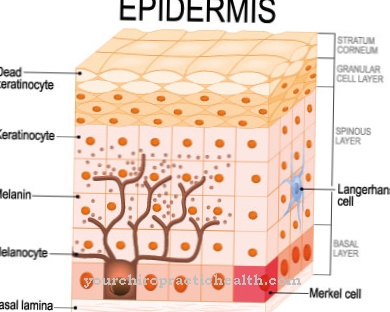The Prenatal care is a preventive health offer for pregnant women. It consists of preventive examinations and optional additional examinations for women in risk groups. Pregnancy care begins with the medical diagnosis of pregnancy and ends shortly before the baby is born, in order to be replaced by aftercare for the woman and child.
What is prenatal care?

Prenatal care is a voluntary but recommended preventive care program for pregnant women. These are routine examinations that can be supplemented by voluntary additional examinations if necessary.
The prenatal care is fully covered by the health insurance - unless the woman wishes a further examination outside of the routine and voluntary offers. Although there is no compulsion to undergo routine prenatal examinations, if this endangers the child's well-being, the pregnant woman can be held accountable for failure to do so. If the woman is employed, her employer must release her from work for the duration of every prenatal care.
The size, growth and development of the child are examined and their general state of health is examined. Conversations with the doctor, weight and blood pressure measurements as well as blood and urine samples contribute to preventive care for the woman. As part of the voluntary examinations, tests are carried out on a case-by-case basis for hereditary diseases in the child. Furthermore, the prenatal care of the expectant mother serves as an opportunity to ask individual questions to the gynecologist in charge.
Function, effect & goals
Most pregnancies go without any major problems; Small difficulties are often easier to deal with if they are detected early than if they were discovered later. That is why prenatal care is mainly used for the early detection of high-risk pregnancies, health problems of mother and child and of course also the detection of hereditary diseases or congenital disorders of the child. The following procedures are used for routine prenatal check-ups:
- Ultrasound examination
- Blood collection (blood values, test for deficiency symptoms, rubella test)
- Urine sample
- Gestational diabetes test
- Vaginal and cervical smear
- Palpation of the cervix
- Weight control of the mother
- Blood pressure measurement of the mother
- Examination of the child's heart sounds
Usually nothing more is necessary. Shortly before the birth, the gynecologist will talk to the woman about the birth, prepare her for it and, if necessary, make a recommendation for a caesarean section. If the mother has a high-risk pregnancy, for example due to the woman's age, gestational diabetes or previous difficult pregnancies, further examinations are possible in order to identify and rule out any risks that may arise:
- First trimester screening with neck fold measurement
- Triple test (blood test to detect hormones that indicate the child's illness)
- Amniotic fluid collection and examination
- Toxoplasmosis Screening Test
- Test for streptococci B, chickenpox antibodies, cytomegaly infection
- Chorionic villus sampling
These examinations serve the early detection of hereditary diseases such as trisomy 21 and are particularly recommended for women aged 35 and over. In exceptional cases, parents can still opt for a late abortion of a hereditary child if this would severely limit his or her quality of life or the child would not be viable at all.
Such examinations in the context of prenatal care enable detection and allow parents to make a decision in an emergency. Furthermore, it can be determined whether the mother needs vaccinations in order to form antibodies against diseases that are dangerous for her and the child, if a previous vaccination no longer offers protection.
You can find your medication here
➔ Drugs against sweating and sweatingRisks, side effects & dangers
Most prenatal examinations are completely safe for mother and child. This applies to all examination procedures of regular prenatal care without IGeL services (these include optional services, such as prenatal diagnostics).
Some examinations, such as the smear or blood sample, can be uncomfortable - here it is important for women to see a gynecologist they can trust. At best, he can also accompany you through the birth, as he already knows you by then and has monitored your health over the past few months. With the IGeL prenatal care services, however, there are risks for mother and child, depending on the examination, about which the pregnant woman is informed on a case-by-case basis. Some prenatal diagnostic procedures, such as amniocentesis, are invasive.
In this case, for example, the uterus is punctured with a needle and amniotic fluid is removed from the amniotic sac; Risks could include leakage of amniotic fluid, complications for healing the injection site and, in extremely rare cases, injury to the child. This is why the risks and benefits of these prenatal care procedures are weighed up and the gynecologist then makes a recommendation that the woman can use as a guide. Of course, the woman can also refuse any prenatal check-up, be it an additional service or part of the routine, if she does not want to accept it at all.
However, if there is no high-risk pregnancy or if the gynecologist does not expressly advise a potentially high-risk examination, prenatal care for mother and child is very low-risk. Furthermore, prenatal care can make life-threatening situations such as gestational diabetes detectable at an early stage, so that treatment can be initiated and the health or life of mother and child are no longer at risk.














.jpg)













